Although I am working in another city in another country, I am frequently in Sofia, Bulgaria – the place I call my home since many years now. One reason is of course that I have close friends there and that therefore I am very much attached to this place. Another important reason is the fact that Sofia has kind of re-invented itself in the last years as a really bookish place.
There are a growing number of well-equipped book stores (new and antiquarian) including a French and an English book store, an open book market, several coffee shops where you can read and buy books and a great number of book-related events, including two book fairs, an Alley of Books once a year at Vitoshka (Vitosha Boulevard), the pedestrian area in the centre, and plenty of book presentations and public readings by authors.
The number of published titles has exploded in the last years, including the number of translated titles. For some languages it seems to be easier to find the book translated in Bulgarian than in English – and I am talking of real literature, not only the fast food literature that is so successful nowadays. Yes, people are reading again, much more so as compared to ten years ago – and this although the average incomes are small compared to Western Europe and although books are expensive for Bulgarians because of the small circulation of most editions and the exorbitant taxes on books (20% VAT!).
And since a few months, Sofia has a new attraction for book lovers. The National Palace of Culture (NDK), a brutalist piece of architecture built in 1981 to celebrate 1300 years Bulgaria, hosts the literature club Peroto (The Feather), a 24/7 open venue that is a combination between coffee shop, library, book store and event stage for all kind of literary events. Miroslav Borshosh from NDK and Svetlozar Zhelev from the Bulgarian Book Association and their team have created a real meeting place for writers and readers. The interior design is tasteful and very suitable for such a place. Since September Peroto is established as an already indispensable part of the book-interested community in Sofia. (Address: National Palace of Culture, Bulgaria Square 1, near Metro Station NDK, always open)
A particular nice event took place last Sunday which I had the pleasure to attend. With the support of the American College a reading performance of a whole group of well-known Bulgarian authors was held. Deyan Enev, Georgi Gospodinov, Alek Popov, Zachary Karabashliev, Alexander Shpatov, Ivan Landzhev, Ivan Dimitrov, Blagovesta Pugyova and Dena Popova read mostly from their own books, Ivan Landzhev read also poems by Rosen Karamfilov who was not able to attend. (I have reviewed books by Popov, Karabashliev and Landzhev already on this blog, others will follow.)
What can I say? It was well presented, entertaining, sometimes funny, sometimes touching, all in all just a great event that made me curious to read more by these authors. It was – as Deyan Enev pointed out – also great to see such a big audience of mainly young readers at the event. Plenty of books for a good cause – the support of a foundation for children with special needs – were bought and authors were busy to sign them. Georgi Gospodinov even drew a small labyrinth in my copy of the Bulgarian original edition of Physics of Sorrow – a reference to the labyrinth of the Minotaurus that plays such a prominent role in this beautiful book. It was of course also a good opportunity to meet friends or to make new one’s. Peroto – I was for sure not the last time at this wonderful address for Bulgarian literature!
Here are the books by the mentioned authors that are available in English:
Deyan Enev: Circus Bulgaria, transl. Kapka Kassabova, Portobello Books, London 2010
Georgi Gospodinov: Natural Novel, transl. Zornica Hristova, Dalkey Archive Press, Victoria London Dublin 2005
Georgi Gospodinov: And Other Stories, transl. by Alexis Levitin and Magdalena Levy, Northwestern University Press, Evanston 2007
Georgi Gospodinov: The Physics of Sorrow, transl. Angela Rodel, Open Letter Books, Rochester 2015
Alek Popov: Mission London, transl. Charles de Luppe, Istros Books, London 2014
Alek Popov: The Black Box, transl. Charles and Daniella de Luppe, Peter Owen, London 2015
Zachary Karabashliev: 18% Gray, transl. Angela Rodel, Open Letter Books, Rochester 2013
Alexander Shpatov: #LiveFromSofia, transl. Angela Rodel, Colibri, Sofia 2014
The books of the other authors are not (yet) available in English, but I hope this will change.
© Thomas Hübner and mytwostotinki.com, 2014-5. Unauthorized use and/or duplication of this material without expressed and written permission from this blog’s author and/or owner is strictly prohibited. Excerpts and links may be used, provided that full and clear credit is given to Thomas Hübner and mytwostotinki.com with appropriate and specific direction to the original content.

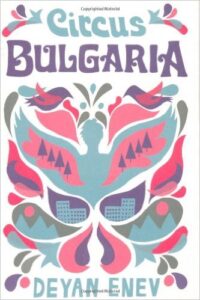
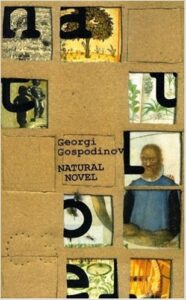
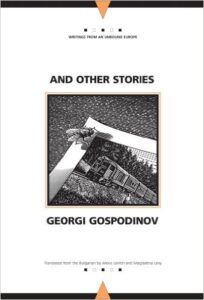
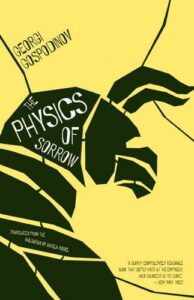
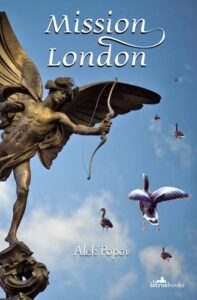
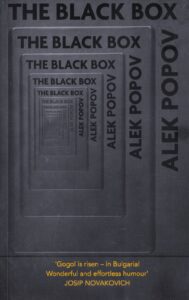
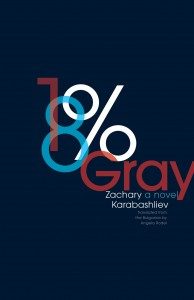
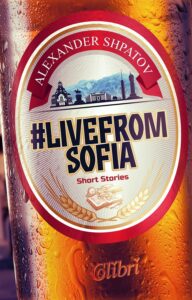


 Facebook
Facebook RSS
RSS Twitter
Twitter
How wonderful to see these titles available in English. Recently I was in Oslo, and loving Norwegian fiction (in English) had great hopes of finding books translated to English from Norwegian that were new to me. At the Literatur Huset all they had was K O Knausgaard (who is almost mainstream these days) and all of whose books in English I have read, and one Per Petterson which I had also read. It is only in second hand bookshops in country Victoria I have found Lars Saabye Christensen and Jan Kjaerstad, both Norwegian writers and Brage Prize winners.
In mainstream bookshops in Oslo, Helsinki ,and Dublin I found the same English fiction highlighted: Gone Girl, The Girl on the Train and The Girl in the Spiders Web. The stranglehold of global publishing!
I am contemplating reviving my German as I have a feeling that I would find more interesting literature in German translation, to say nothing of exciting new fiction in German. Do you think that’s a good move?
A few books seem to get 99% of the media attention and therefore also they are the one’s that are read most frequently. But I know from my own experience and that of many of my friends and other book bloggers that many readers are not happy about that. Therefore I am promoting on my own blog mainly non-mainstream books, books from “small” languages (there are no small languages, I know – there are only languages with a small number of native speakers), out-of-print books, untranslated books, etc. As for bookstores, I tend to avoid online stores if possible, and I buy my books mostly in small book stores that give a chance to small publishers and non-mainstream books. As book buyers, we are also consumers and should understand that we have a certain responsibility to keep the quality and variety high – we do that also for other products, so why not for books?
As for the reading in a second (third, fourth…) language: I can only encourage everyone to do it! It is widening our cultural horizon very much. Imagine how many new choices you can make – if the English translation of a book is not yet available, read it in French, Spanish, German, or whatever language you speak! It takes an effort, but it is worth it. I started again this year to read books in French and will have more books in French on my reading agenda next year (beside reading books in English, German, and Bulgarian). So congratulations to everyone who is reviving his/her language skills! There are so many exciting books to discover!